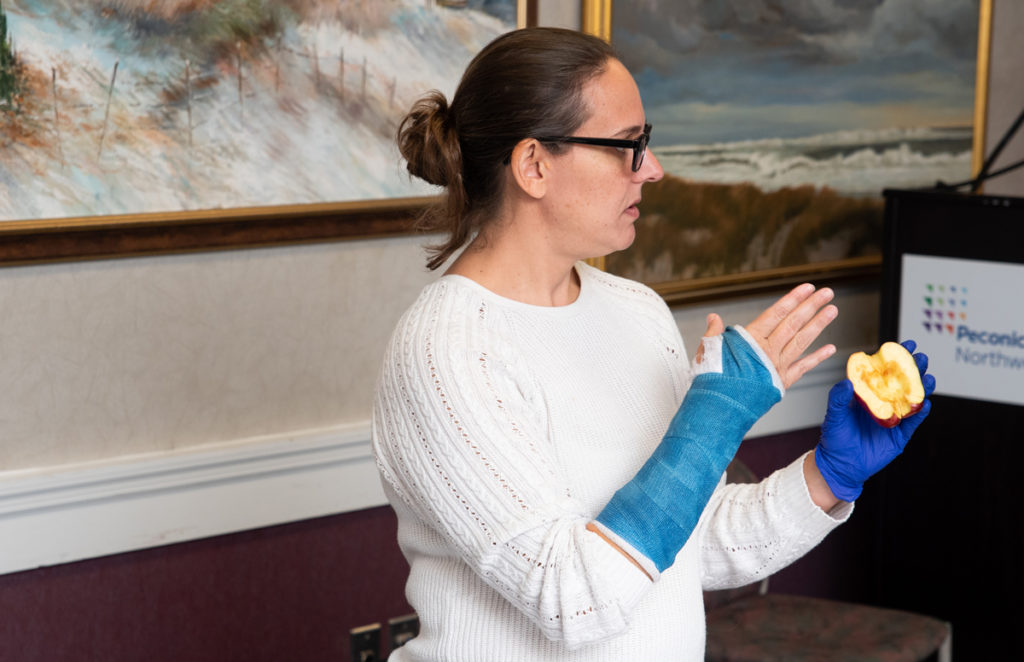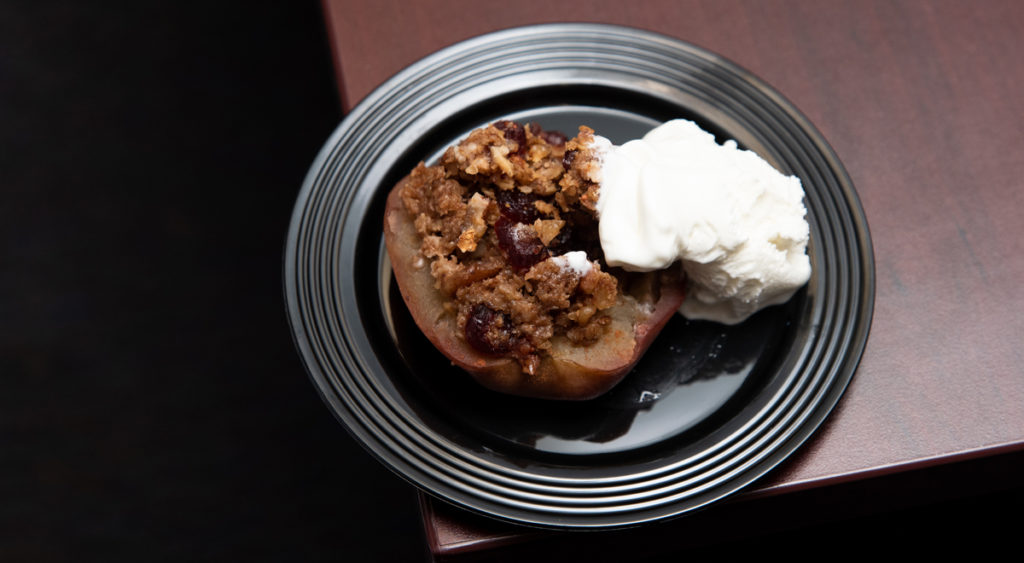Peconic Bay Medical Center’s cooking demos bring healthy meals to life

On a Wednesday afternoon in late October, Peconic Bay Medical Center clinical nutrition manager Jennifer Burns-Peterson addressed a class of a dozen people at the Riverhead hospital’s monthly cooking demonstrations.
“Who went apple picking this weekend?” she asked with a warm smile. Hands shot up across the second-floor conference room, with people chiming in on the local orchards they visited over Columbus Day weekend.
Following the conversational start, engaging with the group and encouraging story-swapping, Burns-Peterson continued.
Cooking is contagious and people love to share
Jennifer Burns-Peterson
“Today, we’re going to learn how to make a healthier version that tastes a lot like apple pie,” she said. “But you’ll be getting a lot more antioxidants.”
She passed out the day’s recipe for sugar-free baked stuffed apples.

Launched in 2015, PBMC’s cooking demonstrations, a component of their Lunch and Lecture program, are designed to teach the community that healthy food not only tastes great but can be prepared simply and cost effectively at home. Each class includes a cooking demonstration and samples of featured dishes, along with recipes and preparation tips.
“All the recipes help people learn how to make healthy meals from non-specialty items they can easily find in their grocery store,” Burns-Peterson explained. “It is designed to be accessible and inexpensive for everyone.”
Burns-Peterson and PMBC registered dietitian Colleen Anderson develop the classes based on meal recommendations from Northwell Health, as well as seasonally available ingredients and timely topics. During Colorectal Cancer Awareness Month in March, for example, recipes contained ample amounts of fiber and in November there was a recipe for sweet potato stuffing.
It was all about incorporating apples for the October class, a win-win because the fruit is in season and can be baked as a replacement for sugar-loaded pies often found on Thanksgiving tables.
“It is a great alternative,” she said. “People become more aware and it makes an impact on their everyday lives.”
During the session, Burns-Peterson broke down the health benefits of each ingredient in the recipe. Oatmeal, which serves as the base for the filling in the stuffed apples, is high in protein and fiber that keeps people fuller longer, she explained. She emphasized that rolled oats should be used instead of instant oats because they have less sugar.

The recipe’s walnuts help support brain function, are rich in good fats (omega-3s) and can help prevent heart disease, she added. The dried cranberries not only add a satisfying fall flavor and crunch, but can also help lower cardiovascular disease and can protect oral health, she said.
Along the way, participants are invited to jump in and ask questions touching on everything from “How do I crack a walnut?” to “Can this help lower my blood sugar?”
“It is really interactive,” Burns-Peterson said. “People feel comfortable here. We have a lot of people that come back every month and they bring new people with them. It is a community.”
The sessions take place monthly on Wednesdays from noon to 1 p.m. in conference room A and B on the second floor of the Riverhead hospital. Though there is no kitchen, samples of the dishes are made in the main kitchen just before class for participants to taste.
The class concludes with the distribution of feedback cards. Everyone is encouraged to fill it out with reviews of the day’s recipes and previous recipes they’ve tried at home. Their words don’t fall on deaf ears, Burns-Peterson said. Based on their feedback, some of the recipes have made it to the hospital’s café menu.
“Cooking is contagious and people love to share,” she said. “It fosters a sense of community and it does make a difference.”








